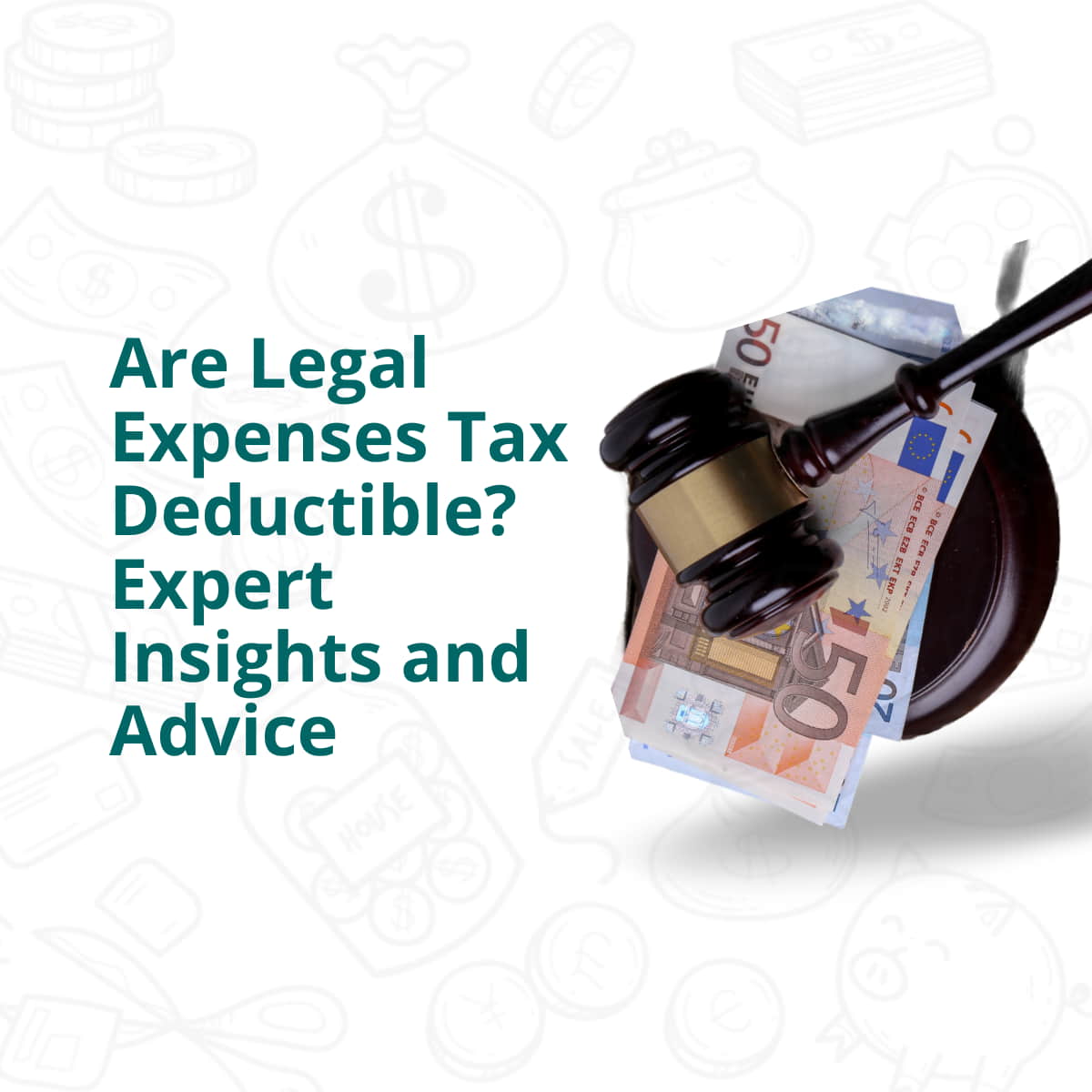
When it comes to taxes, we’re always looking for ways to reduce our bill. One question that often comes up is: are legal expenses tax deductible?
Whether you’re an individual or a business owner, understanding the deductibility of legal fees can help you make smarter decisions about your tax strategy.
In this expert guide, you’ll learn about the differences between individual and business deductions, common types of deductible legal fees, and how to handle tricky situations.
We’ll also provide expert insights to help you navigate the complexities of claiming legal expenses on your tax return.
As an individual taxpayer, you can only claim legal expenses as a deduction if there is a clear connection to deriving assessable income.
For instance, legal fees related to an investment property may be deductible.
However, legal costs of a personal nature are generally not deductible.
When legal expenses are incurred concerning the operation of a business to produce assessable income, they are generally allowable as a deduction.
However, exceptions apply if the legal fee is capital, domestic or private in nature, specifically excluded by tax legislation, or incurred in earning exempt or non-assessable non-exempt income.
The deductibility of legal expenses differs significantly between individuals and businesses.
While businesses can deduct a wide range of legal costs related to their operations, individuals face stricter limitations.
Some legal expenses made deductible for individuals under specific tax provisions include:
In contrast, businesses can deduct legal costs for various activities like negotiating employment contracts, defending legal actions, arbitration, recovering misappropriated funds, and protecting trademarks, subject to certain conditions.
As a business owner, there are several common legal expenses that you may be able to claim as tax deductions. Let’s explore some of these scenarios:
You can deduct legal fees related to tax matters, such as:
These expenses are directly related to your business’s tax compliance and can be deducted as ordinary operating costs.
If you lease a commercial property for your business operations, the legal costs associated with negotiating and drafting the lease agreement are generally deductible.
This includes fees paid to lawyers or real estate professionals for their services in preparing the lease documents.
In certain situations, legal expenses incurred for debt recovery or protecting your business interests may be deductible. These can include:
However, it’s crucial to maintain detailed records and documentation to substantiate these expenses and demonstrate their connection to your business’s income-earning activities.
When it comes to deducting legal expenses, it’s essential to understand the specific rules and regulations that apply to your business.
Consulting with a tax professional can help ensure you maximize your deductions while remaining compliant with tax laws.
While the general principles of deductibility provide guidance, certain situations can be more complex when it comes to claiming legal expenses on your tax return.
Here are some key areas to consider:
You can claim a deduction for expenses incurred in managing your tax affairs, such as the cost of lodging through a registered agent.
Deductible costs include preparing and lodging tax returns, activity statements, buying tax reference materials, taking tax preparation courses, getting advice from recognized tax advisers, dealing with the ATO, and using tax software.
If you own an investment property, you can deduct legal fees related to debt collection or tenant disputes.
Additionally, expenses incurred when selling the property, such as legal fees, advertising, and agent fees, are deductible.
The deductibility of legal expenses related to employment disputes is determined by the connection between the expenses and the income-earning activities.
In cases like Commissioner of Taxation v Shane Day and Romanin v Commissioner of Taxation, legal costs incurred in defending employment-related charges or disputes were found deductible as they were sufficiently connected to the taxpayer’s employment income.
However, the ATO has previously disallowed deductions for legal expenses incurred in seeking better redundancy packages or lump sum termination payments, as these were considered capital amounts compensating for the loss of income-earning ability.
The ATO’s position has since evolved, and in certain cases, such legal costs may be deductible if they relate to enforcing contractual entitlements.
Tax issues can significantly impact a company’s reputation, making it crucial to communicate and manage tax affairs carefully.
Businesses should set clear tax planning policies, decide on appropriate transparency levels, understand stakeholder expectations, engage in relevant tax debates, and stay updated on tax policy developments to avoid surprises.
Defending a business’s reputation may involve legal expenses, which could be deductible if they are incurred in producing assessable income.
However, the deductibility depends on the specific circumstances and the connection between the legal costs and the income-earning activities.
Navigating the complexities of legal expense deductions can be challenging, but you don’t have to do it alone.
As Perth’s leading tax consultants, we’re here to help you maximize your deductions while ensuring full compliance with Australian tax laws.
Whether you’re an individual or business owner, our expert team can help you maximize deductions while staying compliant with Australian tax laws.
To take more control of your finances, book an appointment with Perth’s premier tax experts and optimize your tax strategy.
Click here to schedule your consultation. Let’s make your tax deductions work harder for you.